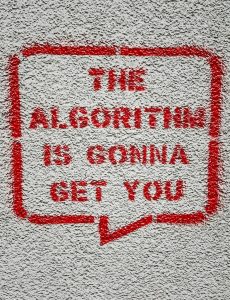AI tools have become increasingly prevalent across creative industries, but how should professional screenwriters approach them? I recently spoke with TV comedy writer Andy Bobrow (Malcolm in the Middle, Community, Brooklyn Nine-Nine) and Guy Goldstein, creator of WriterDuet, about the ethical use of AI in screenwriting.
In our conversation, we discussed the complex relationship between AI and creative writing. Screenwriting students on the call expressed strong opinions about AI content, with one noting they find AI writing “soulless” and sharing how receiving AI-generated content completely killed their interest in a promising project.
Another student observed that AI works best as a tool for specific tasks rather than pure creation, describing their approach as “talking back and forth with it and trying to get to an idea, almost like leading a writers’ room.” These student observations set the stage for insights from our industry experts on this evolving technology.
Research Assistant, Not Creative Partner
For experienced writers like Bobrow, AI functions best as a research tool rather than a creative collaborator. AI cannot write screenplays without extensive programming. It relies on patterns and algorithms. “In terms of using it for writing, I have found it useful as a research aid or an assistant,” Bobrow explained. He described writing an action comedy screenplay where he needed to craft action scenes — something outside his expertise.
“I wonder if AI could help me start this scene,” he recalled thinking. “So, I input, here’s the two characters. There’s magic involved. This one has these superpowers. Here’s the location. Can you write it out and put some twists and turns in it for me?”
The result was revealing. “It spat out a fully formed scene that was garbage. It was absolutely soulless, pathetic – but it did find me a couple of tropes that I was able to say, ‘Oh yeah, that’s a good way to do a reversal.'” Bobrow compared this to traditional research methods. “My use of ChatGPT in that case was the equivalent of me watching a bunch of action movies and taking notes.”
[More: Should You Use AI For Screenplay Feedback?]
AI’s Current Strengths: Summarizing and Analysis
Both experts agreed on AI’s current strengths. “The current state of AI in my mind, it’s very good at summarizing,” Bobrow noted. Goldstein sees AI as especially valuable for screenplay analysis rather than creation. “When I look at AI… I see it largely as a diagnostic and assistant at this point.”
He elaborated, “It can be like, ‘If you put this in a three-act structure, where are the main act breaks? What is the AI interpreting as the character’s goals and motivations?'” This analytical approach can help writers see if their intended story is coming across as planned.

The Copyright Question Remains Unresolved
A major concern when using AI involves copyright and intellectual property. Bobrow highlighted this issue when discussing using AI-generated images for a pitch deck. “I have no idea if they’re too close to something that someone owns and I don’t know how I would figure that out,” he admitted.
“But what I know is I’m not going to use these images for [anything with the public]. These are private. I’m going to show them to some executives in meetings and that’s going to have to get sorted out, the copyright stuff.”
Goldstein addressed similar concerns about uploading original scripts to AI services. “Some of the AI services have explicit rules about how they can use the content and they publish this in a way that is legally binding.” He advises writers to check privacy policies carefully, noting that services like Screenplay IQ (his company’s tool) commit to not training on user content.
The Human Element Remains Essential
Despite its utility, both experts emphasized that AI lacks the essential human qualities that make stories compelling. It can only mimic them as best it can. “Creativity is so inherently human. I bet you, it never really will be able to do what my, what my feeling is, if it could write something as inventive as Barbie, I think we have to let it, because the industry does not exist for us. It exists for the audience.”
Goldstein reinforced this idea, highlighting what AI fundamentally lacks. “AI is missing two fundamental things. 1. It doesn’t have an opinion and 2. it doesn’t have a why. It doesn’t have a reason it thought this story was really important and had to be conveyed in a certain way.” There is no motivation or intention of what it wants to convey to an audience.
The Future: Assistant, Not Replacement
Both experts see AI’s role as an assistant to human creativity rather than a replacement. Goldstein positioned AI as potentially reducing the loneliness of writing. “No one wants to read screenplays. It just isn’t a fun thing people think, it’s Saturday evening, I’m going to go read a screenplay – it’s just so hard to get that constant feedback.”
AI can provide that initial feedback, helping writers refine their work before sharing it with humans. As technology improves, it may be able to better find plot holes or logic flaws.
Bobrow imagines AI becoming part of the development process. “I imagine having conversation with development executives where they go, just for shits and giggles, we showed this to an AI, and here’s what it said. Let’s talk about why it thought that. Is there an actual flaw in this script, or did it miss some nuance?”
Despite fears that AI might replace writers, both experts believe the human element remains irreplaceable. As Goldstein succinctly put it, “The why is you.” For screenwriters navigating this evolving landscape, the message is clear: AI can be a valuable tool for research, analysis, and refining ideas — but the creative spark, the meaning behind the story, and the human connection remain firmly in the writer’s domain.
This interview has been condensed. Listen to the full audio version here.

